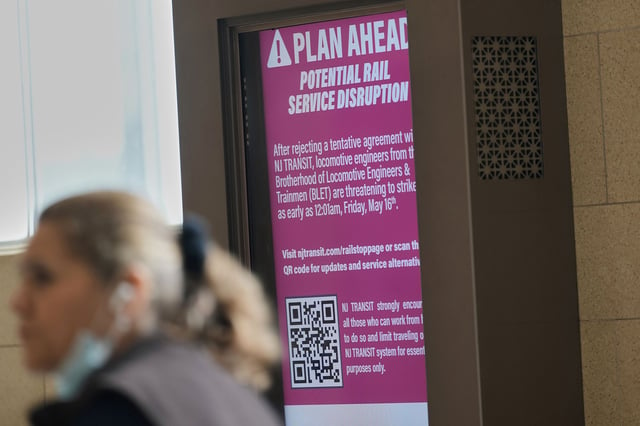Overview
- The strike began at 12:01 a.m. on May 16, halting all NJ Transit commuter rail services and impacting approximately 350,000 daily riders in New Jersey and New York City.
- Negotiations between NJ Transit and the Brotherhood of Locomotive Engineers and Trainmen failed to resolve disputes over wages, with engineers demanding pay parity with regional counterparts.
- NJ Transit has implemented a contingency plan with limited bus services, covering only about 20% of rail passengers, and is urging commuters to work from home if possible.
- Governor Phil Murphy is considering emergency measures to address the disruption but emphasized the need for a solution that balances fairness to workers with fiscal responsibility.
- This marks the first NJ Transit strike since 1983, highlighting broader financial challenges, including a looming $767 million budget shortfall when federal pandemic aid expires in 2026.

